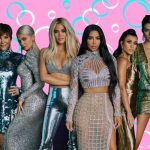John Boyega has always been a political figure, not just because of his activism, but just by virtue of being a Black man in a white-dominated industry.
Boyega has had his career politicised from the moment he graced our screens in the first Star Wars reboot trailer, and he’s had to put up with all kinds of racism and ridiculous standards that seem to be commonplace in Hollywood when it comes to Black actors.
The fact that a simple tweet condemning racism, or his opposition to police brutality was seen as something that could potentially end his career is an indictment to how Blackness is always politicised – because just daring to vocally resist your own subjugation is apparently radical and worth being boycotted for.
I really fucking hate racists.
— John Boyega (@JohnBoyega) May 27, 2020
Since his viral speech at a Black Lives Matter rally after George Floyd’s death, John Boyega has become just as much an activist as he is an actor. His increasingly outspoken criticism of racism not only at home but within the industry continues in his latest interview with GQ, calling out Disney’s failure to protect him as the tokenistic Black lead of their Star Wars reboot.
“Look I don’t know if I’m going to have a career after this but, f**k that.”
John Boyega. pic.twitter.com/KPFDUUFGlM
— The Nikki Diaries (@thenikkidiaries) June 3, 2020
“I’m the only cast member who had their own unique experience of that franchise based on their race,” Boyega said.
“Let’s just leave it like that. It makes you angry with a process like that. It makes you much more militant; it changes you. Because you realise, ‘I got given this opportunity but I’m in an industry that wasn’t even ready for me.’ Nobody else in the cast had people saying they were going to boycott the movie because [they were in it]. Nobody else had the uproar and death threats sent to their Instagram DMs and social media, saying, ‘Black this and black that and you shouldn’t be a Stormtrooper.’
“Nobody else had that experience. But yet people are surprised that I’m this way. That’s my frustration.”
Something I’ve been thinking about a lot lately in regards to tokenistic diversity is how much the POC who break barriers and pave the way for other diverse leads actually suffer in their roles, with little to no support from their employers.
John Boyega and Kelly Marie Tran got their character sidelined and got so much hate, God bless them and all their future endeavors bc they deserved better than what Disney gave them
— ? Hater | available for work ✨(hiatus) (@SA1NTCAKE) September 2, 2020
There’s been an increasing push for diversity on screen, but I’m becoming super critical of this movement as we see just how badly the diversity hires of our favourite shows are treated.
Let’s look at The Bachelor for example. This year we were given Areeba, a Pakistani-Australian woman that received a lot of screen time in promos in a seemingly obvious bid to pull in viewers of diverse backgrounds.
While some might see the casting of a brown lead as progressive, I have to argue otherwise. In The Bachelor premier, we immediately saw Areeba racially insulted and abused by a white contestant – with no intervention or protection by producers, and with a villain edit to boot.
The only non-white girl getting the fiesty, villain edit? #TheBachelorAU pic.twitter.com/9Rs36gxJZT
— Lauren Edwards (@laurenvedwards) August 12, 2020
I wrote an entire article about the situation, but the relevant point here is that Areeba was thrown into a situation where she was uncomfortable and unsafe with no protection from the people who put her there.
It makes me question how meaningful having a diverse cast is if those cast members have to endure all kinds of racial abuse and threats just to be there. Especially when the production team, directors and other cast members are responsible for a hostile space, too – not just racist viewers. How is it progressive for a company to hire or cast a POC and then throw them to the wolves?
if the first reaction you have to john boyega sharing his painful experience with racism at the hands of the star wars franchise, is to defend a director that said this, then please fuck off pic.twitter.com/yTz2s26ttD
— kay (@fulcrumcassian) September 2, 2020
If a company/corporation/employer isn’t going to protect the POC they hire from the backlash they will inevitably get, how is it progressive? This is why token diversity is so toxic – it doesn’t seek to dismantle the structures that prevent POC from occupying space, it just subjects us to the hostility of that space and expects us to be grateful for it.
John Boyega found himself in the same situation with his character Finn – he was cast as a Black lead, used as a demonstration of Disney’s apparent wokeness, and then left to fend for himself when he became the subject of torrential abuse.
There’s a reason why during TFA build up Disney used John Boyega’s Finn with a lightsaber in most of the promo material.
A young black stormtrooper becoming the hero Jedi? It’s what we wanted to see. It’s the better story. Instead they screwed Boyega over and lied to the fans pic.twitter.com/nYJHRO5WRT
— Walt (@UberKryptonian) September 2, 2020
Later in the interview, Boyega discusses how Disney used his Blackness as a marketing tactic but didn’t actually do the work to write a decent storyline around his role.
“What I would say to Disney is do not bring out a black character, market them to be much more important in the franchise than they are and then have them pushed to the side. It’s not good. I’ll say it straight up.”
“Like, you guys knew what to do with Daisy Ridley, you knew what to do with Adam Driver,” he says. “You knew what to do with these other people, but when it came to Kelly Marie Tran, when it came to John Boyega, you know fuck all. So what do you want me to say? What they want you to say is, ‘I enjoyed being a part of it. It was a great experience…’ Nah, nah, nah. I’ll take that deal when it’s a great experience.
“They gave all the nuance to Adam Driver, all the nuance to Daisy Ridley. Let’s be honest. Daisy knows this. Adam knows this. Everybody knows. I’m not exposing anything.”
John Boyega’s description of the way Disney approached his character is another facet of how tokenistic his role was.
I am glad he spoke up for Tran. There were so many good things about the new Star Wars but he is right. The POC characters were never developed enough. Tran got so much heat just for being Asian. His BLM speech was so raw and so unapologetic. I loved it.
— its not the flu (@eye_and_i) September 2, 2020
Despite the fact that John Boyega was marketed from the get-go as the exciting new Black lead, he received very little character depth, back story, growth, or even a real character arc. For majority of the series his character’s entire personality revolves around his relationship with a white woman – one which is often shown to be unreciprocated co-dependancy.
Yes, we know this is bad writing – but also, it’s bad writing that is noticeably worse with the show’s few non-white characters.
That’s the thing about tokenism – it reduces BIPOC to the most basic elements of their personality, doesn’t allow them depth, growth or multiple dimensions, and often results in suffering and trauma for the person in question.
John Boyega saying “black characters in hollywood are always goofy sweating scared guys” hit me like a fucking truck cause I can think of 700 examples off the top of my head
— Mr. Feel, Weeaboomer (@mrfeelswildride) September 2, 2020
So, it begs the question, is all representation good representation, even if it’s at the star’s expense?
Can tokenistic representation really be meaningfully progressive when it’s going to harm the person involved? Is it fair to expect POC to subject themselves to shitty environments for the sake of representation?
Until we start to address the multitudes of issues that keep BIPOC out of certain roles and jobs – like racist employers, all-white production teams, and general in-house hostility, diverse casting really doesn’t mean much.
“i’m excited for the mandalorian” and “dropping the date was a strategic play to silence John Boyega’s Black experience and I wont forget it” are two things that can & should be said
— lu ✿ yaddle defense attorney (@millebiennium) September 2, 2020
Image Sources: Twitter




